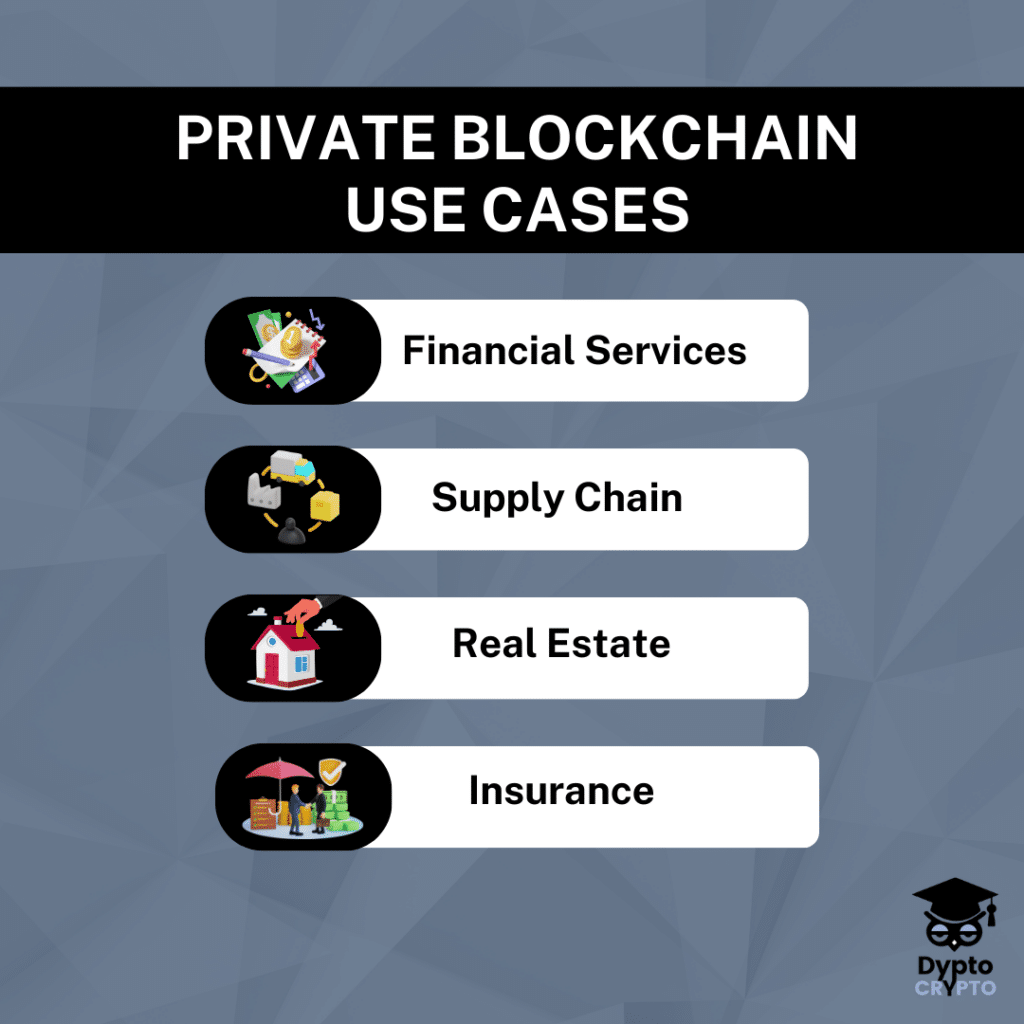What is a Private Blockchain?
A private blockchain is a distributed ledger that allows only a select group of participants.
The Long Definition
A private blockchain is a type of protocol where access is limited to a select and verified group of participants. Such blockchains are typically created by a single entity or several entities working together, It will have an operator who oversees the whole system and controls entry and usage.

The Need for Private Blockchains
Thanks to cryptocurrencies, blockchain technology has exploded in popularity. Crypto was the first mainstream adoption of blockchain protocols. Its successes opened the door for many more potential applications of the technology. Today, it can be used in many industries. These include banking, insurance, health, supply chain tracking, entertainment, voting, etc.
But there is a slight problem. Many of these new applications involve potentially sensitive data. And blockchain technology, as used by Bitcoin and other cryptocurrencies, is a public, permissionless protocol. This means anyone, anywhere in the world can participate in the system. This allows them to see all the data stored in the system.
This, as you can imagine, is not something that would work in every industry. Some markets deal with potentially sensitive data.
For instance, in health, the last thing you want is for anyone and everyone to be able to see your medical information. Similarly, in the banking sector, there is some personal and corporate information that shouldn’t be available to everyone.
Thus, corporations couldn’t just adopt blockchains like Bitcoin and Ethereum. They needed something different. They needed a way that would let them enjoy the benefits of blockchain technology without the potential downsides of complete transparency. This led to the creation of private blockchains.
How Do Private Blockchains Work?
Technically, a private blockchain is pretty similar to a public one. There are nodes (computers) that make up the network. Thanks to these computers, the system is distributed. This means it does not run on one central machine. Instead, each node runs the blockchain’s client software.
There is also a kind of consensus mechanism. This means the nodes regularly check against one another to ensure data on the blockchain is accurate.
But that’s as far as the similarities go. For one, users must ask for permission or receive an invitation before they can participate. This typically means that they need to provide identification. So, the identities of all participants are known.

There is also an administrator who oversees the protocol. One of their biggest duties is controlling who gains access to the system. They grant and remove permission to/from users who want to use the blockchain protocol. They also configure the roles of users and nodes across the network.
So, while private blockchains are distributed, they are not decentralized. The presence of an admin introduces an aspect of centralized control that’s absent in public blockchains.
Furthermore, participants don’t share equal rights within the protocol. There is a hierarchy that’s determined by the system’s rules. Therefore, you will find that some users can access certain types of data while others cannot.
Also, private blockchains don’t need to have a native crypto coin. Coins in public blockchains help maintain the network by paying miners and validators. In a private blockchain, nodes are operated by the company. The people responsible for them receive their salaries in their bank accounts like regular employees.
Advantages and Disadvantages of Private Blockchains
The biggest advantage of private blockchains is privacy. By controlling who can access the ledger, these protocols protect potentially sensitive data. This makes them good for applications in accounting, health, supply and logistics, insurance, and many other business areas.
On the flip side, private blockchains are less secure than public blockchains. This is because they’re not nearly as distributed or decentralized. Compared to Bitcoin and Ethereum, an enterprise can only run a few nodes. This makes them more vulnerable to cyber-attacks.
Also, the presence of an administrator introduces the possibility of censorship. Some will argue that this is necessary for a private setting. However, it does go against the widely accepted spirit of blockchain technology, which is all about censorship resistance.
Want to join the Dypto journey? Follow our socials!